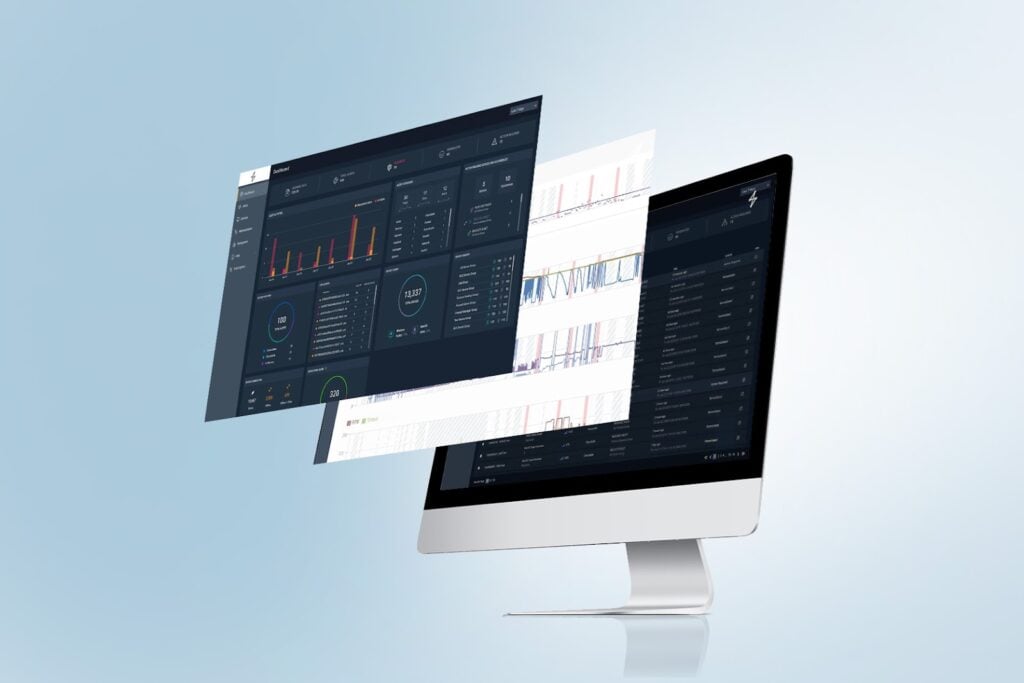From computer linguistics to humanoid robotics, women have made tremendous strides in artificial intelligence (AI) and the technology industry. In honor of Women’s History Month, we are acknowledging the instrumental contributions of many unsung female pioneers, past and present.
Early pioneers
- Ada Lovelace published the first algorithm to be run on a machine and is regarded as one of the first computer programmers of our time. Lovelace’s contributions to the field weren’t immediately recognized, but in 1980, her theories were used to develop a new computer language named in her honor.
- Grace Hopper was one of the first programmers of the Harvard Mark I computer and invented the first compiler for a computer programming language. Her efforts led to the development of COBOL (Common Business-Oriented Language), a high-level programming language for business applications still used today. In 1947, Hopper recorded the world’s first-ever computer bug.
- Hedy Lamarr, a movie star in the 1940s, was also a self-taught science genius. In World War II, Lamarr invented and patented a frequency-hopping spectrum technology for rocket guidance that became the foundation for the secure Wi-Fi we use today.
- Margaret Masterman was the founder of the Cambridge Language Research Unit (CLRU) and is credited as a pioneer of research in computational linguistics. Beginning in the 1950s, she focused on semantics vs. syntax—or making sure computers could differentiate between a phrase that is simply grammatically correct and one with reasonable, deeper meaning.
- Katherine Johnson was an American mathematician whose calculations of orbital mechanics, as a National Aeronautics and Space Administration (NASA) employee, were critical to the success of the first and subsequent U.S. space flights.
- Margaret Hamilton was one of the first computer software programmers and created the term “software engineer” to describe her work. Hamilton led the software engineering division at MIT’s Instrumentation Laboratory in the late 60s and early 70s, and helped write the computer code for the command and lunar modules used on the six Apollo landing missions to the moon between 1969 and 1972. In 2016, she received the Presidential Medal of Freedom for her contributions to software development.
- Annie Easley is a trailblazer for gender and racial diversity in STEM. She worked as a scientist, mathematician, and rocket scientist at the Lewis Research Center of NASA and its predecessor, the National Advisory Committee for Aeronautics (NACA). She was also the leading member of the team that developed software for the Centaur rocket stage and was one of the first African Americans to work as a computer scientist at NASA.
Present-day trailblazers
In keeping with the example set by these early pioneers, women have continued to influence and shape the technology and computing industry. These remarkable women join a long list of others leading the way in technology today:
- Fei-Fei Li is the co-director of Stanford’s Human-Centered AI Institute. She was responsible for building ImageNet, which is a 15 million-image dataset that contributed to the latest developments in deep learning and AI. She co-founded the nonprofit AI4ALL, which supports K-12 education programs for underrepresented groups in AI, stating, “We all have a responsibility to make sure everyone—including companies, governments, and researchers—develops AI with diversity in mind.”
- Latanya Sweeney is a professor of government and technology at Harvard University. Sweeney fuses her two specialties into a unique approach to AI—creating and using technology to assess and solve societal, political, and governance problems. In addition to teaching at Harvard, Sweeney is the Director of the Data Privacy Lab in the Institute for Quantitative Social Science at Harvard.
- Elaine Kant is a former Carnegie Mellon professor turned founder of SciComp, Inc. Kant has left significant marks on the field of AI since the 1970s. She demonstrated the collaborative human interpreter system for automatic programming in 1979. She is a widely recognized leader in software synthesis, known for her papers on automating algorithm design as well as her work with scientific computing environments.
- Andrea Frome received her Ph.D. in computer vision and machine learning at Berkeley and is now credited with launching research on visual classification for Google Street View. This work is meant to ensure the software is accurate enough to blur all faces and license plates in the surrounding environment for privacy purposes.
- Barbara J. Grosz is the recipient of the 2009 Allen Newell Award, which recognizes career contributions that have breadth within computer science or that bridge computer science and other disciplines. She also served as the first dean of science at Harvard Radcliffe Institute for Advanced Study and is credited with building its science program. She is widely recognized for her contributions to the advancement of women in science, alongside her contributions to the fields of NLP and multi-agent systems.
Women at SparkCognition
A truly inclusive culture requires mentorship and career mobility. SparkCognition is honored to highlight some of the women who are forging their own paths in technology. These talented women help clients integrate new data platforms, develop technology solutions, and grow businesses and people.
- Andrea Schmidt is an AI Solution Architect working in Industrial Solution Sales. She interacts with a wide range of talented people across our internal organization as well as with our customers. The best part of her job is playing with data at the technical analysis level and demonstrating the problem-solving potential of a well-architected solution. Getting to that satisfying “Ah ha!” moment is what she strives for. Some inspirational sayings that motivate her are “be so good they can’t ignore you” and “let the data tell the story.”
- Dawn Sarnecky is a Services Operations Manager. She especially enjoys working to make processes become leaner and more efficient, and cross-collaborating with other departments to understand their challenges and where services can help. She asks herself this question daily, “How can I contribute to SparkCognition’s growth? What can I do today to help SparkCognition scale for the future?” A favorite quote of hers is, “Nothing is impossible. The word itself says ‘I’m Possible!’” from Audrey Hepburn.
- LaDonna Wernli is the Director of People Operations for SparkCognition Government Systems. Early on, she adopted two valuable lessons that have served her well throughout her career. A manager’s first responsibility is the care and growth of your people’s careers; the business results will surely follow and a team lacking diversity (in thought, religion, culture, background, experience, gender) is a team lacking more than they are able to see. One of her favorite quotes is: “There are not more than five musical notes, yet the combinations of these five give rise to more melodies than can ever be heard. There are not more than five primary colours, yet in combination they produce more hues than can ever been seen. There are not more than five cardinal tastes, yet combinations of them yield more flavours than can ever be tasted.”― Sun Tzu, The Art of War
- Rupali Roy is a Data Scientist II on the Professional Services team. She started her career as a Software Engineer for a healthcare solutions-based company in Mumbai, India, where she worked on data-driven health care applications, fueling her love for predictive analytics and machine learning. Her passion lies in the intersection of technology, analytics, and business, and she finds data science to be a perfect blend of this. One quote that inspires her in life is, “Don’t stop until you are proud!”
At SparkCognition, we are proud of the women who forged the way in AI and technology, but we are also excited about the many ways women will continue to contribute to making the world safer and sustainable through the power of AI. Learn more about career opportunities and discover how you can create the future with us at www.sparkcognition.com/careers.
















